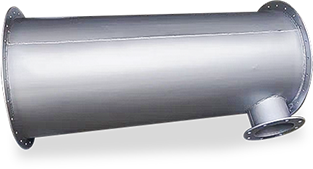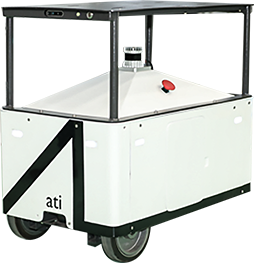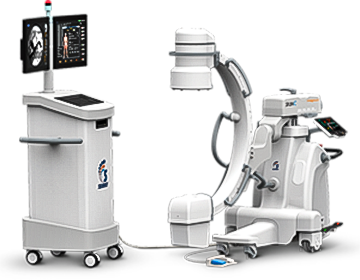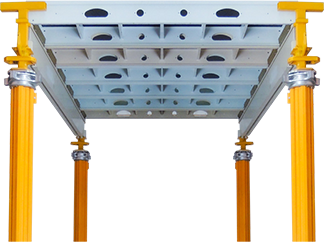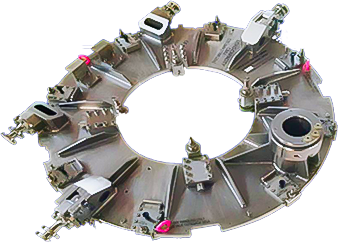CNC Machining Inconel
Material Description
Inconel is a high-performance family of nickel-chromium-based superalloys renowned for their exceptional resistance to high-temperature environments, corrosion, and oxidation. These alloys, developed by the Special Metals Corporation, are primarily composed of nickel, chromium, and iron, with small but critical additions of other elements such as molybdenum, niobium, and cobalt. This carefully engineered combination of elements imparts unique mechanical properties to Inconel materials, making them highly suitable for a wide range of demanding applications. Inconel alloys exhibit superb strength, even at elevated temperatures, along with impressive creep and fatigue resistance. Their high nickel content grants them remarkable resistance to oxidation and chloride-induced stress corrosion cracking, a vital feature in applications exposed to aggressive chemical environments. These materials are often employed in aerospace, petrochemical, and marine industries, where they endure extreme heat, pressure, and corrosive conditions, making Inconel an indispensable choice for components like turbine blades, exhaust systems, and high-temperature fasteners.
Furthermore, Inconel’s remarkable thermal stability extends to its exceptional cryogenic properties, rendering it ideal for use in both high-temperature and cryogenic applications. Its robust mechanical characteristics, together with good weldability and formability, make Inconel highly versatile for various manufacturing processes. Whether it’s for gas turbine components in aerospace, heat exchangers in chemical processing, or marine exhaust systems, Inconel alloys continue to be favored for their outstanding technical attributes, making them a critical material in modern engineering and industry.
Grades
Inconel 600 & 718
Finishing Options
Electroplating, Passivation, Polishing
| Density | Tensile Yield Strength (MPa) | Fatigue Strength (MPa) | Hardness (Brinell) | Thermal Conductivity (W/m-K) | Coeff. of Thermal Expansion (mm/mdeg) | Electrical Resistivity (micro Ohm-cm) |
|---|---|---|---|---|---|---|
| 8400 | 100-500 | 300-500 | 150 - 330 | ~10-18 | 13.4 | 70-126 |
Design Recommendation
When designing components or structures with Inconel, a high-performance nickel-chromium alloy renowned for its exceptional corrosion resistance and high-temperature strength, it is imperative to consider several key factors. First and foremost, precise machining and forming techniques should be employed, as Inconel’s hardness can pose challenges during fabrication. Furthermore, meticulous attention must be given to material selection to ensure compatibility with intended operating conditions. The design should incorporate generous radii and fillet sizes to reduce stress concentrations, and adequate corrosion-resistant coatings or treatments should be utilized in aggressive environments. Additionally, designs should account for thermal expansion and contraction, as Inconel’s coefficients of thermal expansion are higher than common structural materials. Finally, close collaboration with experienced engineers and metallurgists is essential to maximize the advantages of Inconel and ensure the long-term reliability of the components.
Cost Saving Tip
Inconel machining is often expensive due to its resistance to wear and heat. To save costs, choose cutting tools with advanced coatings, such as titanium aluminum nitride (TiAlN), and maintain strict temperature control during machining. Efficient chip evacuation systems, including through-spindle coolant, help prevent chip recutting, reduce heat buildup, and enhance overall machining efficiency. Consider the use of computer-aided manufacturing (CAM) software to optimize toolpaths and minimize unnecessary tool movements, which can lead to shorter cycle times and reduced machining costs while maintaining high-quality results.
